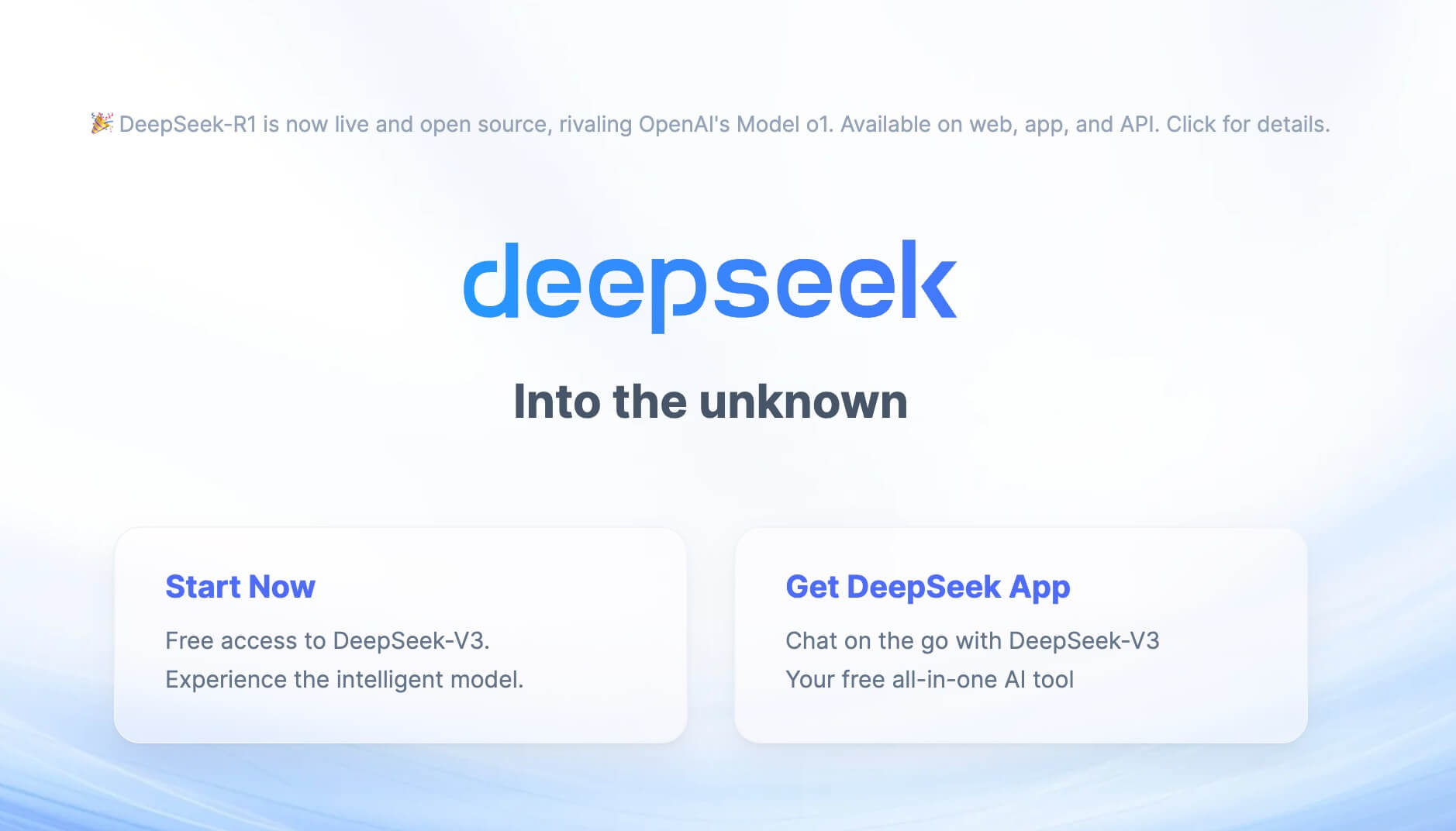Using DeepSeek
·
2 min read
·
291
Words
·
-Views
-Comments
DeepSeek AI has gained considerable attention recently. Today, I learned about it and considered migrating some of my current OpenAI services to DeepSeek.

Platform
Similar to OpenAI, DeepSeek provides an API, web version, and App. Unfortunately, it hasn’t launched a WeChat mini-program version yet.
Web Version
API
Official documentation: https://api-docs.deepseek.com/
Notably, DeepSeek’s API is fully compatible with OpenAI’s API, so you can use the official OpenAI SDK directly; just set the baseUrl to https://api.deepseek.com.
For example, in NodeJS:
// Please install OpenAI SDK first: `npm install openai`
import OpenAI from "openai";
const openai = new OpenAI({
baseURL: 'https://api.deepseek.com',
apiKey: '<DeepSeek API Key>'
});
async function main() {
const completion = await openai.chat.completions.create({
messages: [{ role: "system", content: "You are a helpful assistant." }],
model: "deepseek-chat",
});
console.log(completion.choices[0].message.content);
}
main();
Free Credits
- After registration and logging into the API platform, you get
10CNYcredits valid for 1 month. There is no expiration date for recharged amounts.
Actual Experience
- The web version is high-speed, and it seems comparable to GPT4o quality-wise.
- API speed is breakneck; after using it for half a day, the quality seems good.
Disadvantages
- The web version doesn’t support image generation or image recognition
- API doesn’t support Embedding yet
Pricing
- API pricing is benchmarked against OpenAI, which is cheaper than 4o and similar to 4o mini.
- The web version appears free with no quota limits, though paid tiers might be introduced later.
My Current Use Cases
- Configured DeepSeek for translation in EuDic; experience is good.
- Installed AI Commits in JB IDE and configured DeepSeek to generate commit messages for code submissions.
Conclusion
DeepSeek currently appears to be a promising Chinese AI. To better serve users, I hope they can launch more product forms, such as a WeChat mini-program version.